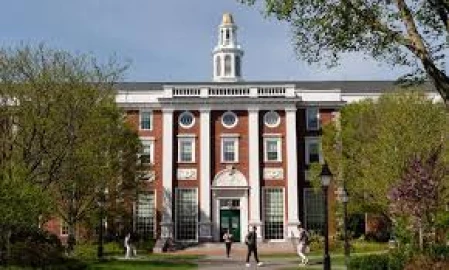A federal judge on Monday extended a temporary restraining order blocking President Donald Trump’s attempt to bar international students from attending Harvard University, as she considers issuing a longer-term injunction in the escalating legal battle between the administration and the Ivy League institution.
U.S. District Judge Allison Burroughs said at a Boston hearing that the restraining order — originally set to expire on Thursday — will remain in effect until June 23, allowing more time for the court to deliver a considered ruling.
“We’ll kick out an opinion as soon as we can,” said Burroughs, an Obama-era appointee.
The judge’s remarks came in response to Harvard’s legal challenge against Trump’s June 4 presidential proclamation, which seeks to suspend the entry of foreign nationals to study or participate in exchange programs at Harvard, citing national security concerns.
The policy, if enacted, would suspend new student entries for six months and potentially lead to the revocation of existing visas for international students already enrolled at Harvard. Nearly 6,800 international students currently attend Harvard — roughly 27% of its student body.
Ian Gershengorn, counsel for Harvard, argued the move was retaliatory and unconstitutional.
“The impact of the proclamation is devastating to Harvard and its students,” said Gershengorn. He further alleged that the proclamation violated Harvard’s First Amendment rights, claiming it was retribution for the university’s refusal to submit to political pressure over its curriculum, governance, and faculty.
The Department of Justice defended the administration’s actions. DOJ attorney Tiberius Davis argued that Congress gave the president broad authority under the Immigration and Nationality Act to restrict entry of foreign nationals.
“We don’t trust them to host foreign students,” Davis said, referencing national security risks and unrest on Harvard’s campus.
Burroughs noted the government’s legal team faces an “uphill battle” convincing the court that Harvard would not suffer irreparable harm if the policy was implemented.
The legal fight follows Homeland Security Secretary Kristi Noem’s abrupt move on May 22 to revoke Harvard’s certification under the Student and Exchange Visitor Program (SEVP), effectively stripping the university of its ability to enroll international students. That decision was quickly blocked by Judge Burroughs.
Although DHS has since shifted to a slower administrative challenge process, the Trump proclamation dramatically escalated the standoff. It labels Harvard “no longer a trustworthy steward” of international education and empowers Secretary of State Marco Rubio to consider revoking visas of current students.
The administration has accused Harvard of accepting questionable foreign funding, particularly from China, and of failing to adequately address students allegedly involved in illegal campus protests during a time of heightened unrest.
President Trump has also accused the university of allowing antisemitism to spread, especially in the wake of pro-Palestinian protests related to the Israel-Hamas war — a claim Harvard has refuted.
Harvard is also pursuing two other lawsuits before Judge Burroughs — one to unfreeze $2.5 billion in federal funding and another to block federal interference in its enrollment of international students.
A final ruling on the injunction is expected in the coming days and could set a precedent for how far executive authority can reach into American higher education under the banner of national security.

